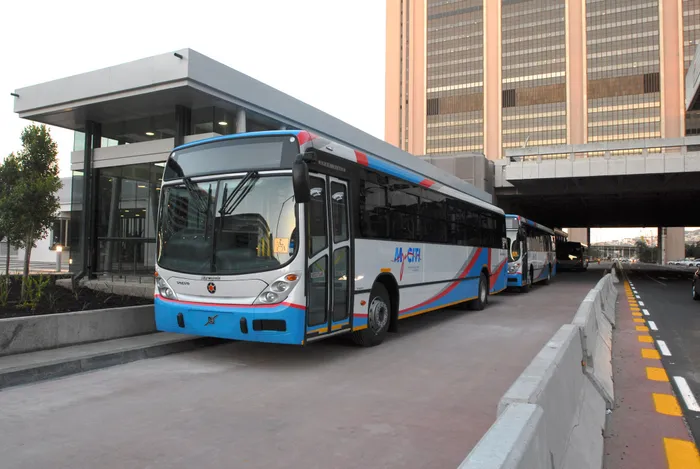
The City of Cape Town has reportedly awarded a R2 billion tender for cleaning and security services across the city's transport hubs.
Image: Melinda Stuurman
"We live here, we clean here, we protect here why then must we watch outsiders get paid to do what our people are desperate to do for survival?"
When the City of Cape Town awarded a R2 billion tender — yes, two thousand million rand — to a Johannesburg-based company for cleaning and security services across our transport hubs, it didn’t just overlook a few local businesses. It slammed the door shut on thousands of unemployed Capetonians, on hundreds of community-based enterprises, on our own city’s dignity and economic sovereignty.
Let’s call this what it is: A disgraceful betrayal.
A moral failure.
A neoliberal procurement racket dressed up as efficiency.
The awarded tender reportedly spanning eight years goes to CBRE Excellerate Facilities, headquartered in Johannesburg, not Cape Town.
The value? R2 billion.
No mention has been made of how many jobs will go to Capetonians, if any. No commitments to local subcontracting. No transparency around local bids rejected.
The work? Cleaning, security, and maintenance at MyCiTi and other city transport hubs. Tasks our local cooperatives, NGOs, FBOs, CBOs, youth enterprises, and SMMEs are more than capable of performing.
We are not asking to clean skyscrapers in Sandton.
We are asking to clean and guard our own streets. And we’re being denied.
This is not just a missed opportunity. It is a policy sin against our poor.
Let’s do the math:
If even R1 billion of this was ring-fenced for local small contractors, Cape Town could have:
Instead, the City outsourced our livelihoods to a faraway corporate behemoth whose executives may not even know where Delft is, or what Khayelitsha needs.
We’ve heard it all before:
"They scored highest on compliance."
"The tender was open and fair."
"Local firms didn’t meet the requirements."
Well, who sets the requirements?
Who designs the procurement processes?
Who decides what 'capacity' mean?
Let’s not pretend this isn’t systemic gatekeeping. This is economic apartheid by spreadsheet. A democracy that denies economic participation is not a democracy at all.
Imagine if that same R2 billion had been:
This is not utopia. It is called community wealth building and it is being done in Barcelona, Cleveland, Manchester, and other progressive cities.
Why not here? Why not us?
This R2 billion scandal must be seen for what it is:
It is part of a broader pattern:
Gentrified housing projects that displace the poor.
Privatised public spaces.
Red-tape strangling informal traders.
And now, billion-rand contracts shipped out of town.
We must not let this pass quietly.We must raise our voices.
1. Demand transparency:
2. Demand justice:
3. Demand a new procurement policy:
Capetonians built this city.
We clean it. We guard it. We carry its burdens.
Now we are told we are not good enough to serve it?
This is not just about one tender.
It is about a broken system that rewards the powerful and penalises the poor.
We must stand up. Speak out. Organise.
We must say: R2 billion must build our city, not enrich outsiders.
And if this is not reversed, we will make it a campaign issue in every ward.
We are watching. We are organising. We will hold you accountable.
* Faiez Jacobs is a former MP, Local Governance Strategist, and Community Builder.
** The views expressed do not necessarily reflect the views of IOL or Independent Media.
Related Topics: